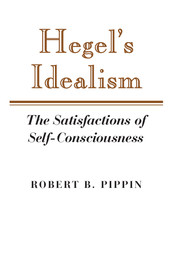Book contents
5 - Skepticism, knowledge, and truth in the Jena Phenomenology
Published online by Cambridge University Press: 05 June 2012
Summary
Idealism and skepticism
Whatever else Hegel intends by asserting an “Absolute Idealism,” it is clear by now that such a claim at the very least involves Hegel in a theory about pure concepts, and about the role of such concepts in human experience, particularly in any possible knowledge of objects, but also in various kinds of self-conscious, intentional activities. Moreover, his account of this role is clearly committed to the priority of such a conceptual element. Throughout his mature system, his general term of art for such a nonempirical and supposedly “spontaneously self-moving” condition is “the Notion” (der Begriff) and, simply put, his claim is that the Notion originally determines the possibility and character of human experience. And it is also uncontroversial that Hegel does not want to be committed to any claim that would construe such a relativization of objects of experience or norms of action to our conceptual structure as a limitation, one that leaves us, to use his highly speculative language, with the finitude of subjective idealism rather than the infinity of Absolute Knowledge. There is, in Hegel's final position, no possible contrast between our conceptual framework and “the world,” and hence no such limitation. Finally, in much of the Jena material, Hegel had begun to connect the possibility of such a fully developed or “Absolute” Notion with a theory of subjectivity, an account of what it was to be a selfconscious subject in such a “Notional” relation with objects, an account, that is, of what he will call “Spirit”.
- Type
- Chapter
- Information
- Hegel's IdealismThe Satisfactions of Self-Consciousness, pp. 91 - 115Publisher: Cambridge University PressPrint publication year: 1989



